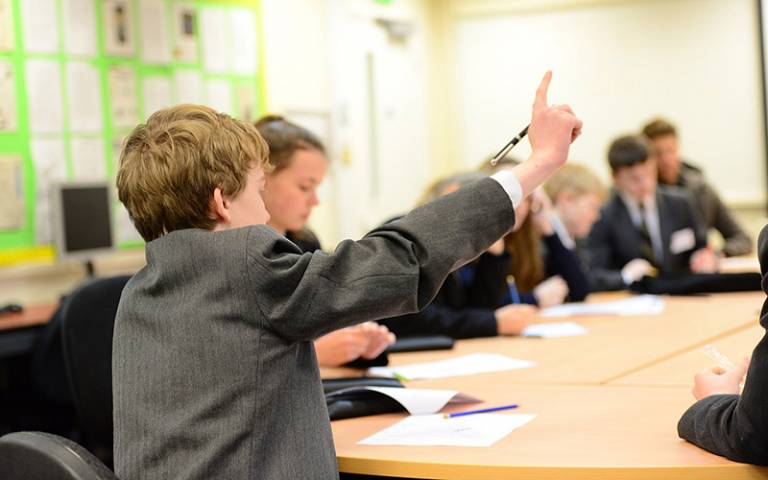Children to be taught mindfulness in schools
4 February 2019
Hundreds of children will learn innovative techniques to promote good mental health in a series of trials in schools, led by UCL and the Anna Freud National Centre for Children and Families.

To mark the start of Children’s Mental Health Week (4-10 February), the Education Secretary Damian Hinds announced today that up to 370 schools in England will take part in a series of trials testing different approaches to supporting young people’s mental health.
Children will benefit from mindfulness exercises, relaxation techniques and breathing exercises to help them regulate their emotions, alongside pupil sessions with mental health experts. The study, one of the largest in the world of its kind, will run until 2021 and aims to give schools new, robust evidence about what works best for their students’ mental health and wellbeing.
“We know schools have a strong commitment to supporting children’s mental health and wellbeing but have had little clear guidance about the best ways to approach this,” said lead researcher Dr Jessica Deighton (UCL Psychology & Language Sciences and Anna Freud National Centre for Children and Families).
“We want children and young people, parents and teachers to be confident that mental health in schools has an absolutely robust evidence base. This world leading research, which we at the Anna Freud Centre are proud to be leading, will provide that and has the potential to transform mental health promotion in schools across England.
“We also need to better identify the mental health needs of the most vulnerable children in society, particularly children in the care system, and an improved mental health framework will greatly help.”
The school study is now in its second wave and recruiting more primary and secondary schools to join.
The trials are designed to explore the impact of different approaches at school, in recognition of the significant time children spend at school and the important role teachers can play in recognising changes in pupils’ behaviour or mood.
To explore what works in schools to support young people’s mental wellbeing, the trials will test five different approaches. These include:
- Two approaches focused on increasing awareness in secondary schools through short information sessions either led by a specialist instructor or by trained teachers. These include a set of tools to increase understanding of mental health and mental disorders among both pupils and teachers; and
- Three approaches in primary and secondary schools that focus on lighter-touch approaches such as exercises drawn from mindfulness practice, breathing exercises and muscle relaxation techniques and recognising the importance of support networks including among their own peers.
Mr Hinds said: “As a society, we are much more open about our mental health than ever before, but the modern world has brought new pressures for children, while potentially making others worse.
“These trials are key to improving our understanding of how practical, simple advice can help young people cope with the pressures they face.”
Links
- About the AWARE and INSPIRE trials in the Education for Wellbeing programme
- UCL and Anna Freud Evidence Based Practice Unit
- UCL Psychology & Language Sciences
- Dr Jess Deighton's academic profile
Image
- Classroom (Source: Flickr)
Source
Media contact
Chris Lane
Tel: +44 (0)20 7679 9222
Email: chris.lane [at] ucl.ac.uk
 Close
Close

